This Package of interventions of rehabilitation for vision impairment is intended to be used for children, adolescents and adults with impairments in visual functions (International Classification of Diseases, 11th revision (ICD-11): 9D40 Impairment of visual acuity; 9D41 Impairment of visual field; 9D42 Patterns of visual field impairment; 9D43 Impairment of…
All Resources
Showing 201 - 210 of 454
Results are ordered by date, with most recent published resources shown first.
Use the other filters to customize your search.
Results are ordered by date, with most recent published resources shown first.
Use the other filters to customize your search.
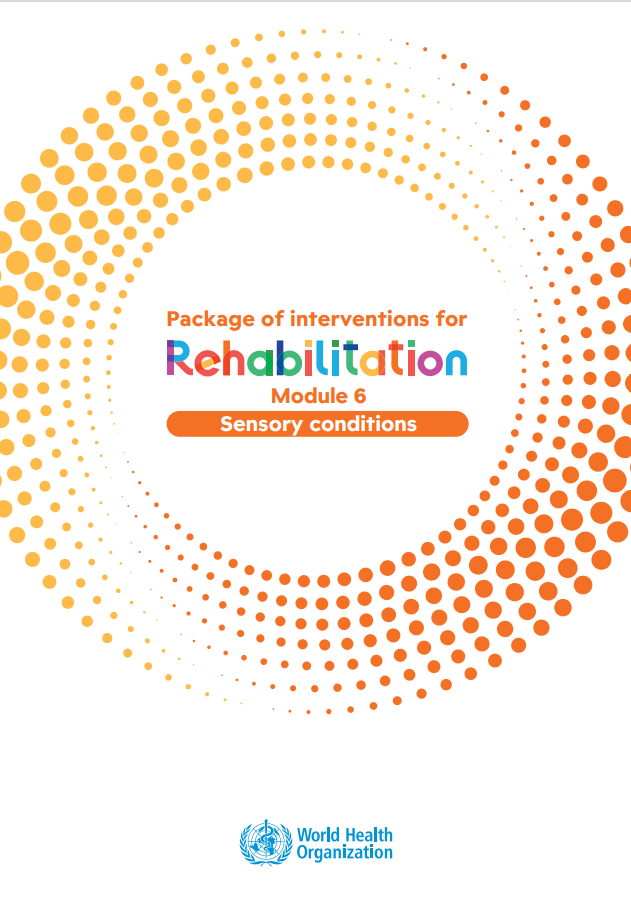
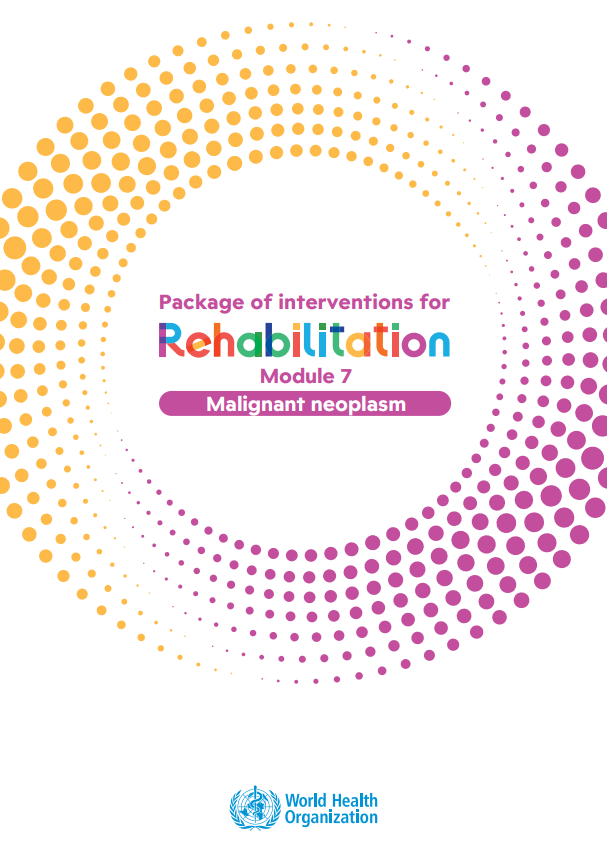
This Package of interventions of rehabilitation for cancer is intended to be used in rehabilitation for children and adults with malignant neoplasms (International Classification of Diseases,
11th revision (ICD-11): 02B–02E Malignant neoplasms, except primary neoplasms of lymphoid, haematopoietic, central nervous system or related tissues; 2A00–2A0Z Neoplasms of…
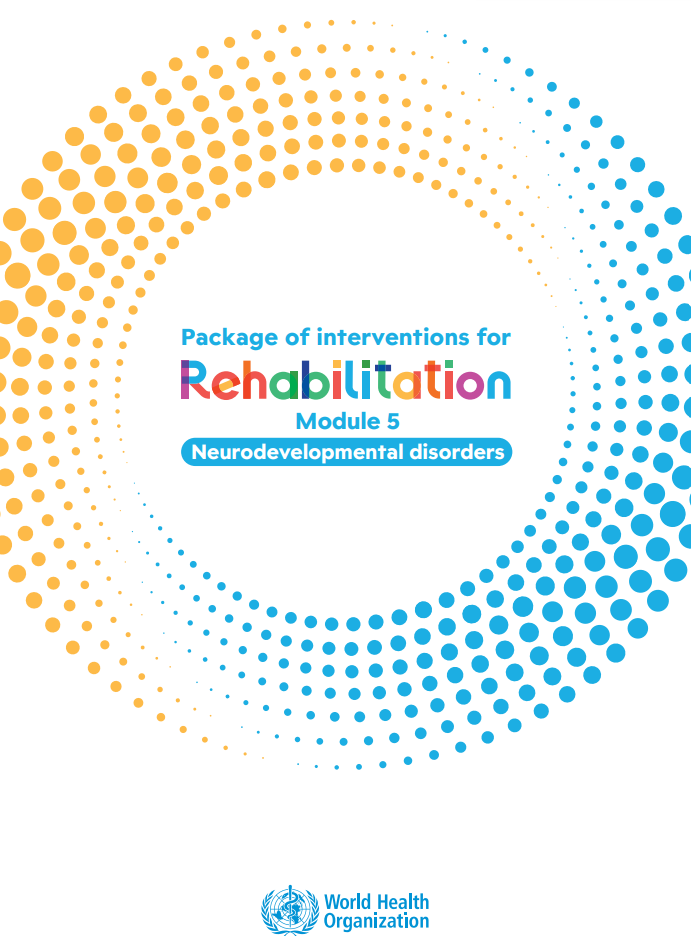
This Package of interventions of rehabilitation for autism spectrum disorders is intended to be used for children, adolescents, and adults with autism spectrum disorders (International Classification of Diseases, 11th revision (ICD-11): 6A02 Autism spectrum disorder) with or without disorders of intellectual development.
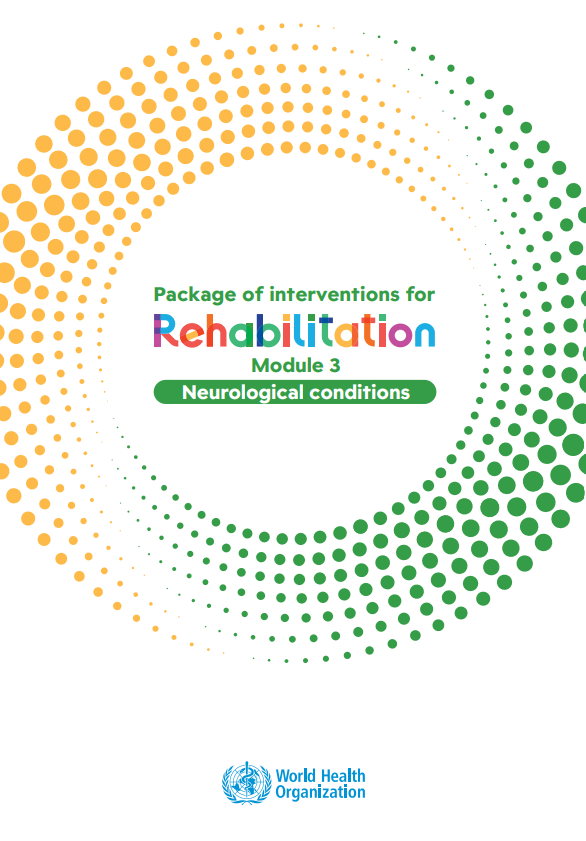
This Package of interventions of rehabilitation for stroke is intended to be used for adults who have experienced a stroke, including cerebral ischemic stroke (International Classification of Diseases, 11th revision (ICD-11): 8B11 Cerebral ischaemic stroke), intracerebral haemorrhage (ICD-11): 8B00 Intracerebral haemorrhage) or subarachnoid haemorrhage (ICD-11: 8B01…
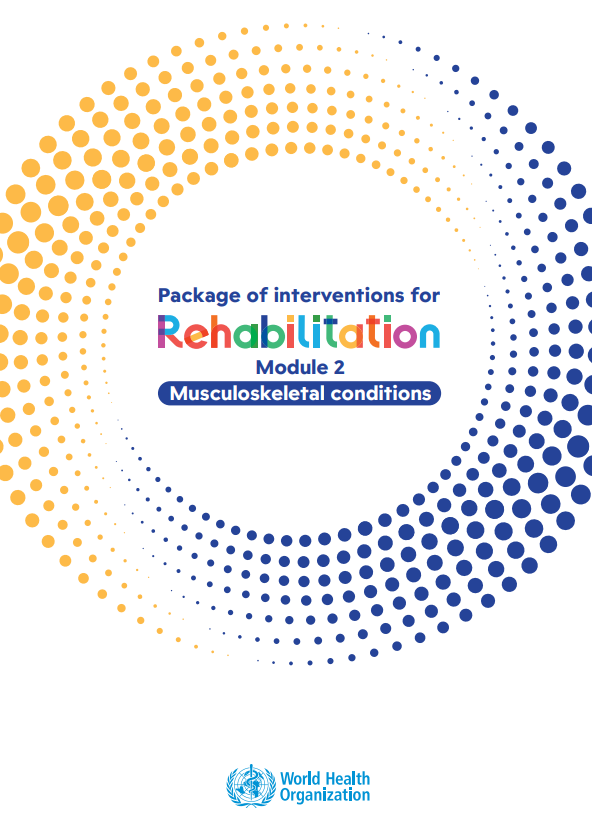
This Package of interventions for rehabilitation for low back pain is intended to be used for adults with chronic primary low back pain with or without leg pain (International Classification of Diseases, 11th revision (ICD-11): MG30.02 Chronic primary musculoskeletal pain and MG30.31 Chronic secondary musculoskeletal pain associated with structural changes)
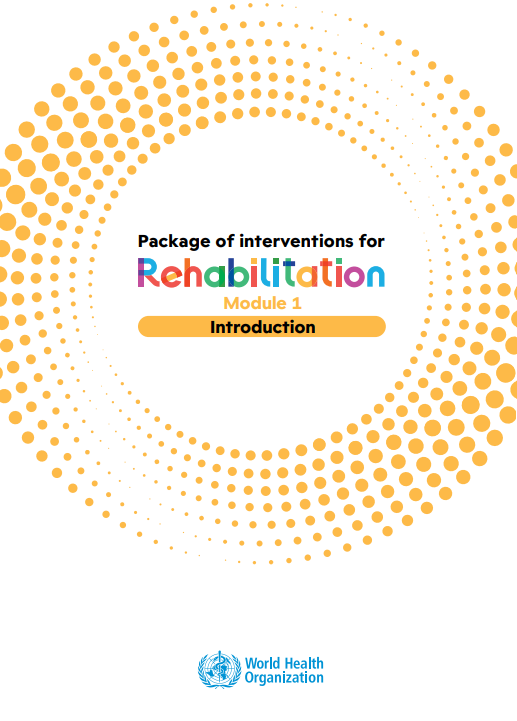
The Package of interventions for rehabilitation is an important tool for planning the implementation of rehabilitation in health systems and for strengthening the rehabilitation workforce. As such, it complements WHO’s Rehabilitation in health systems – guide for action and the Rehabilitation competency framework.
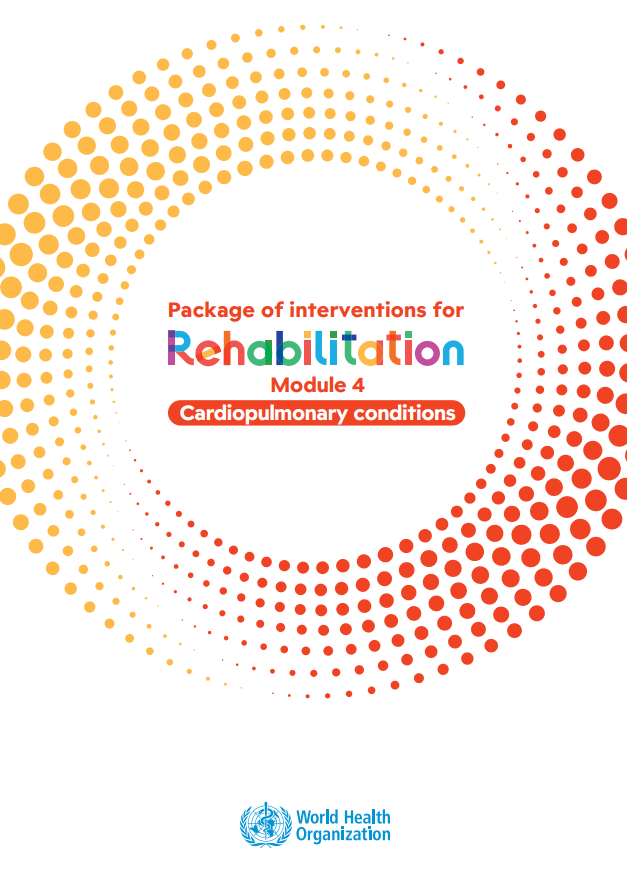
This Package of interventions of rehabilitation for ischaemic heart disease is intended to be used for adults with acute (International Classification of Diseases, 11th revision (ICD-11): BA40 Angina pectoris; BA41 Acute myocardial infarction; BA42 Subsequent myocardial infarction; BA43 Coronary thrombosis not resulting in myocardial infarction) and chronic (ICD-11:…
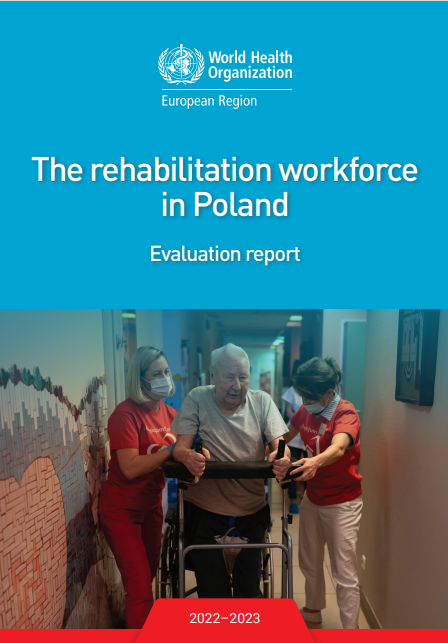
This Package of interventions of rehabilitation for schizophrenia is intended to be used in rehabilitation for children, adolescents and adults with schizophrenia (International Classification of Diseases, 11th revision (ICD-11):6A20 Schizophrenia). Although the critical part of treatment for schizophrenia is medication, medicines are not included in the Package of…
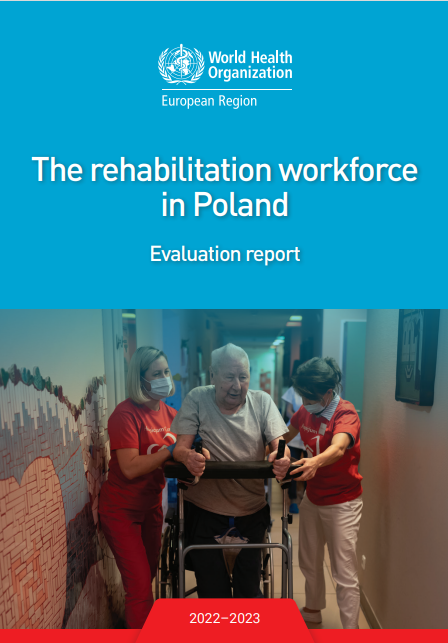
This report details the findings of an evaluation of the rehabilitation workforce in the Poland, with a specific focus on physiotherapy, occupational therapy, clinical psychology, prosthetics and orthotists, speech and language therapy, and physical and rehabilitation medicine. The evaluation aimed to garner detailed information on the rehabilitation workforce to…
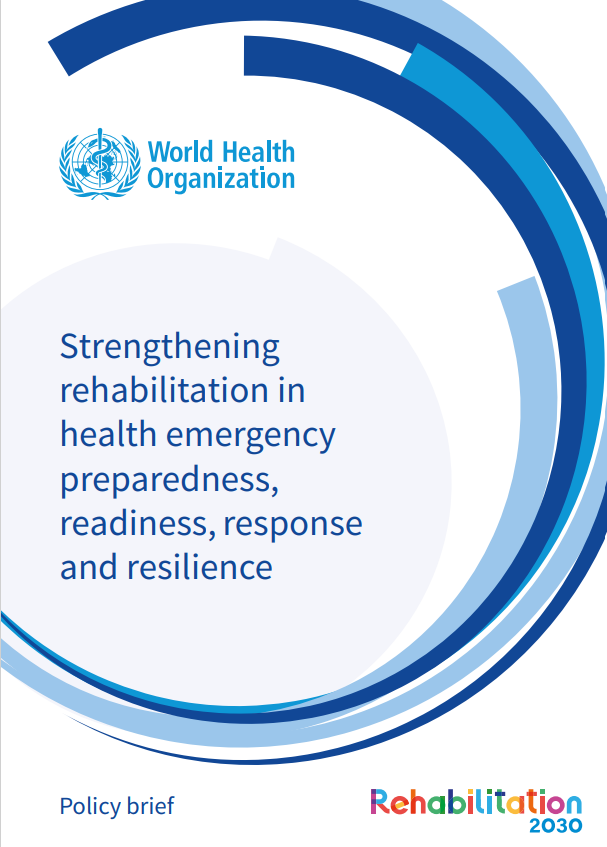
Health emergencies require a rapid and coordinated rehabilitation surge response to meet increased needs, while also maintaining essential rehabilitation services. To achieve this, rehabilitation needs must be integrated into all hazard health emergency preparedness, readiness, response and resilience (HEPR). This policy brief outlines the evidence for rehabilitation…
